Celebrity Media AI Academy Editor’s Note: The Paris Artificial Intelligence Action Summit took place at the Grand Palais in Paris from February 10 to 11, 2025, bringing together leaders from nearly 100 countries in politics, business, and academia to discuss the future development and global governance of Artificial Intelligence (AI). Co-hosted by France and India, the summit emphasized the importance of international cooperation. However, the United States and the United Kingdom refused to sign the declaration on "inclusive and sustainable" AI, highlighting differences among nations in AI governance.
The summit showcased global cooperation and competition in the field of AI. While nations are advancing AI development, they are also seeking to balance innovation with regulation. European Commission President Ursula von der Leyen emphasized: “This summit is about action, and action is exactly what we need now. It is time to set a vision, to define how we want AI to guide society and human progress. Then, we must take action to accelerate Europe's advancement in AI.”
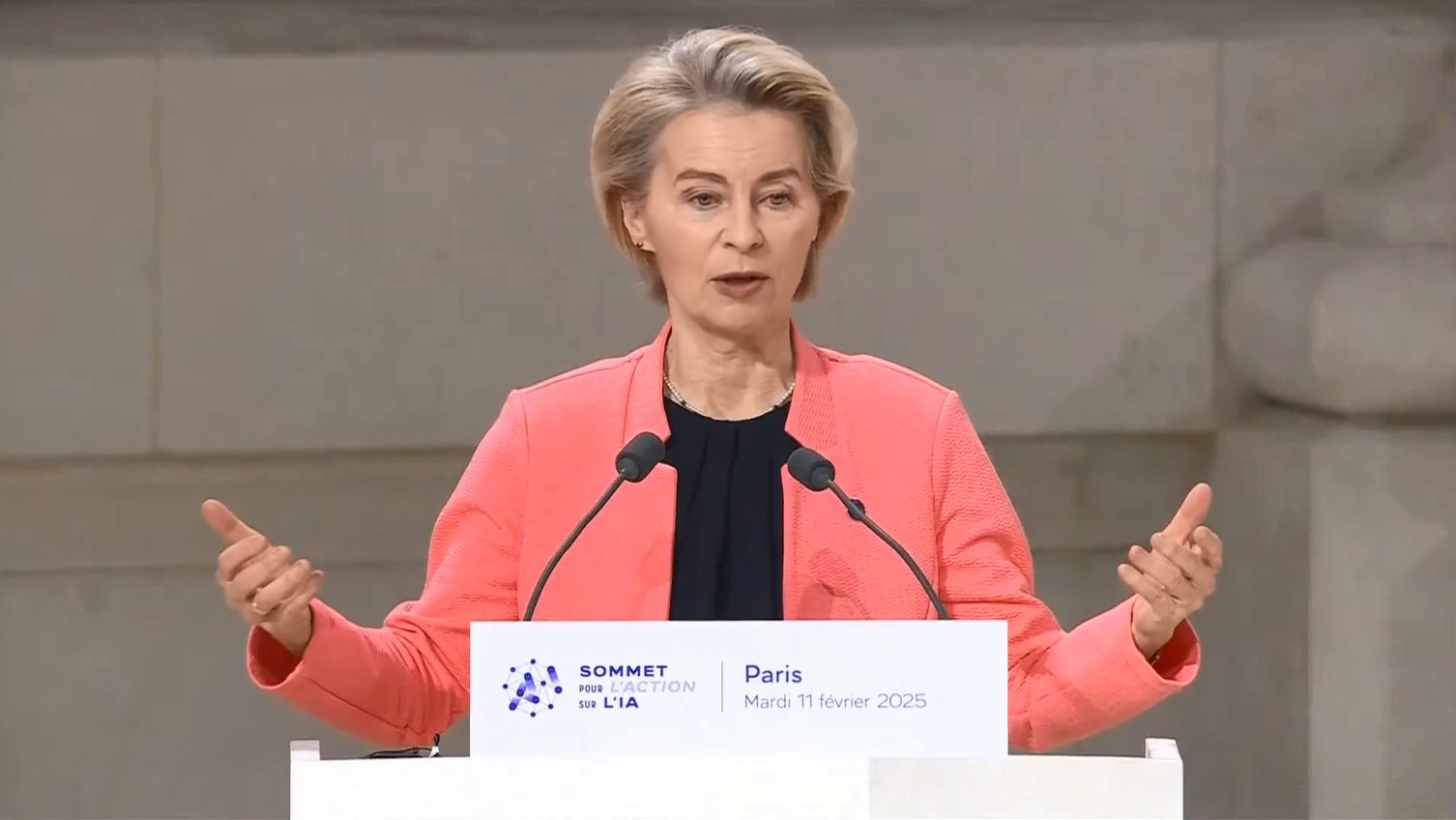
Presidents, Your Highnesses, Prime Ministers, Excellencies, Ladies and Gentlemen:
This is the third AI summit in just over a year. In this short time, three generations of more powerful AI models have emerged. Some predict that within a year, AI models will approach human reasoning capabilities.
Previous summits focused on the foundational infrastructure for AI safety, and we have reached a consensus: AI should be safe, uphold our values, and benefit humanity.
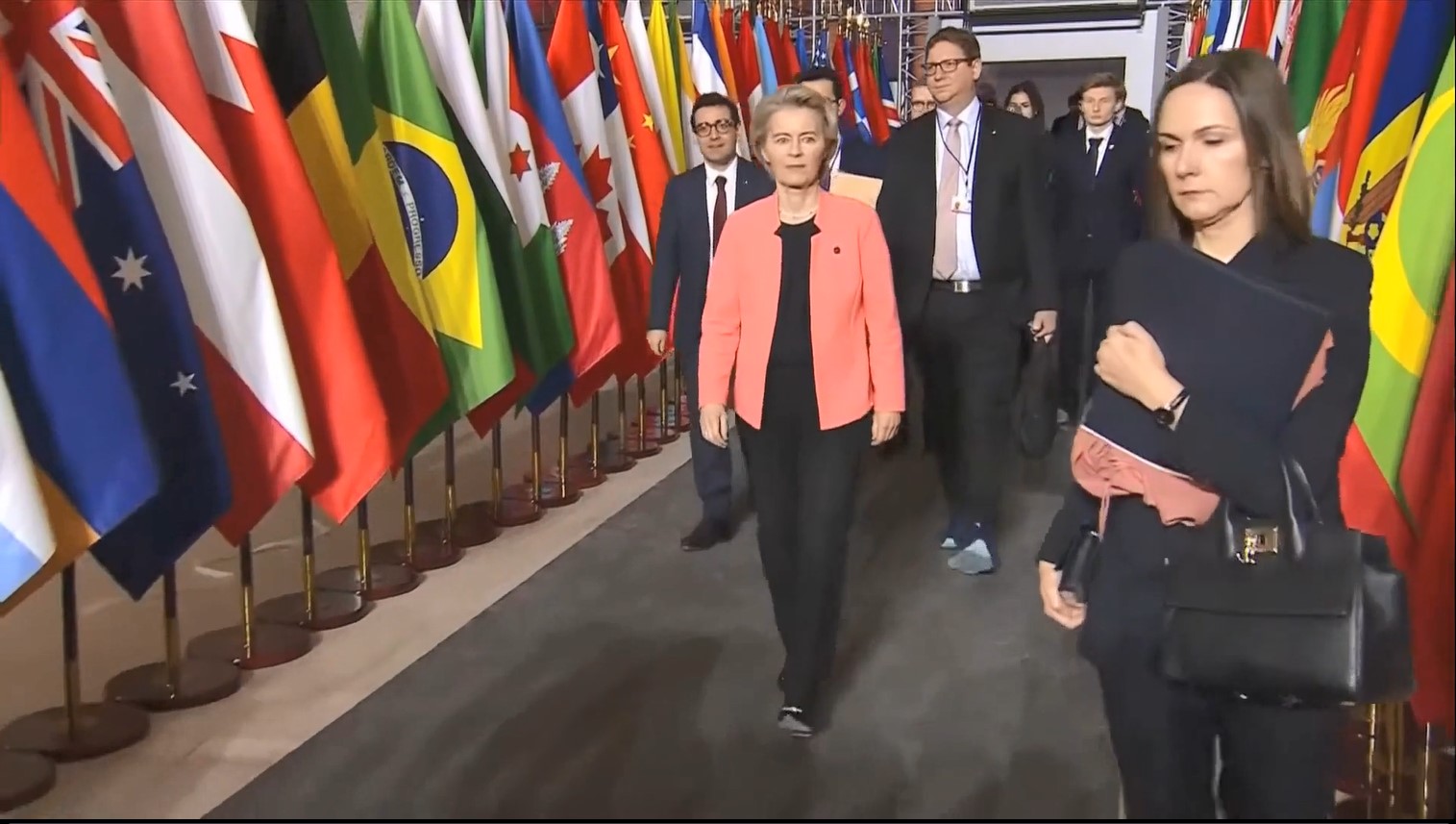
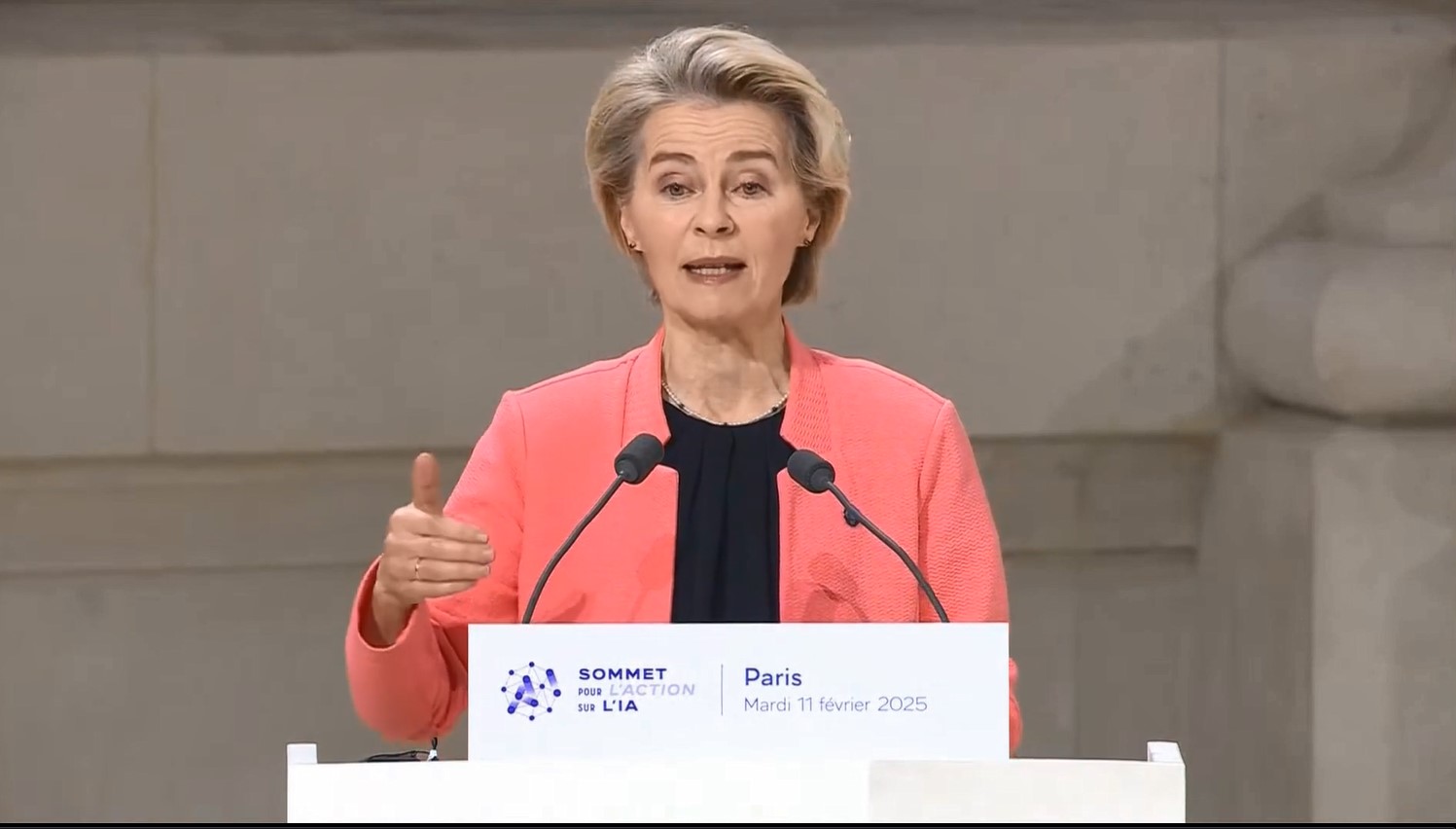
However, this summit focuses on action, and action is exactly what we need now. It is time to set a vision, to define how we want AI to guide society and human progress. Then, we must take action to accelerate Europe's advancement in AI. This is exactly what I want to discuss today: Europe’s unique position in the global AI race.
Europe’s AI Vision
We want Europe to be the leading AI continent globally, meaning AI should be integrated into our daily lives. As we all know, AI can help enhance competitiveness, ensure security, improve public health, and democratize access to knowledge and information.
These are the achievements that you—entrepreneurs, researchers, investors, and business leaders—are showcasing in Paris and the transformations you drive daily. These achievements represent the AI continent we aspire to become.
However, I often hear people say that Europe is lagging behind in the AI race, that the US and China have taken the lead. I disagree because the AI race is far from over. In fact, we are still in the early stages, frontier technologies are constantly evolving, and global leadership is still up for grabs.
Moreover, there is still tremendous potential in the broad application of AI. AI is just beginning to enter key industries and support solutions to the major challenges of our time. This is where Europe should focus: applying AI in industry-specific areas to enhance productivity and benefit people. This is where Europe can truly lead in the AI race.

Europe’s Unique AI Model
Europe has everything it takes to win in the AI race. However, we need a unique European AI development model.
I often hear the argument that we should copy other countries’ approaches and catch up with their advantages. But I believe we should focus on our strengths and build our own European advantages.
Europe's strength lies in our science and technology; we have long contributed scientific and technological advancements to the world. As this summit demonstrates, Europe has developed a unique AI style—one that fosters innovation and technological adaptation and is accelerating progress.
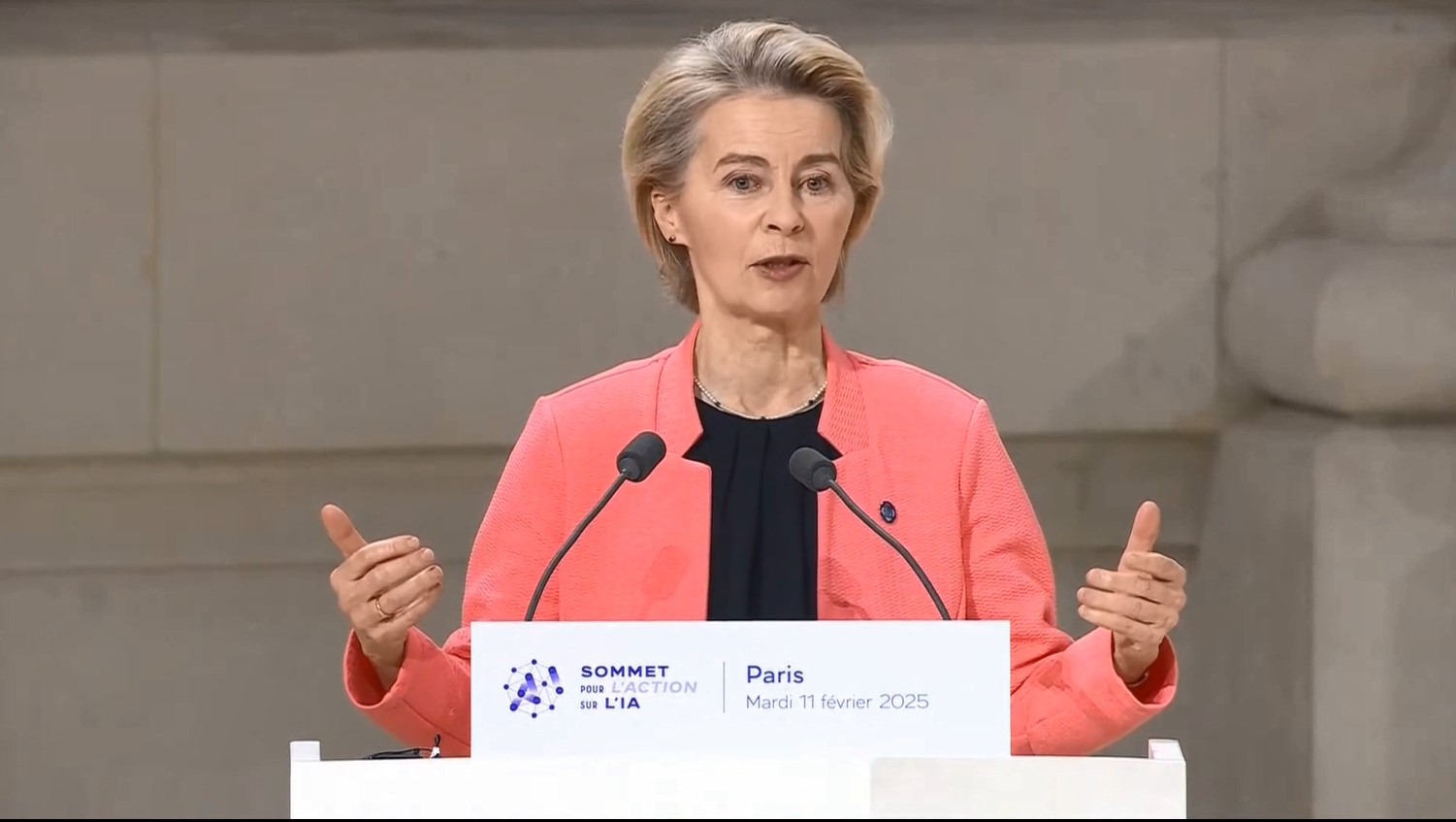
The Three Key Features of European AI
First, European AI focuses on AI applications in complex domains, leveraging our industrial and manufacturing data along with specialized expertise.
Second, European AI is collaborative. It brings together talent from different countries, industries, and backgrounds. This collaborative spirit aligns with our scientific cooperation model, which has led to countless breakthroughs and cultivated a vast talent pool. Consider the "Horizon Europe" program—it has become the backbone of European scientific research.
Third, European AI embraces open-source technology. Open-source AI can spread more quickly while coexisting with proprietary systems. Because of this, Europe’s AI startup ecosystem is thriving, with the number of unicorn companies increasing tenfold in just a few years.
This European-style open innovation is yielding results, but now it needs a greater push. That is why this AI Action Summit is crucial: we must take steps to accelerate innovation.
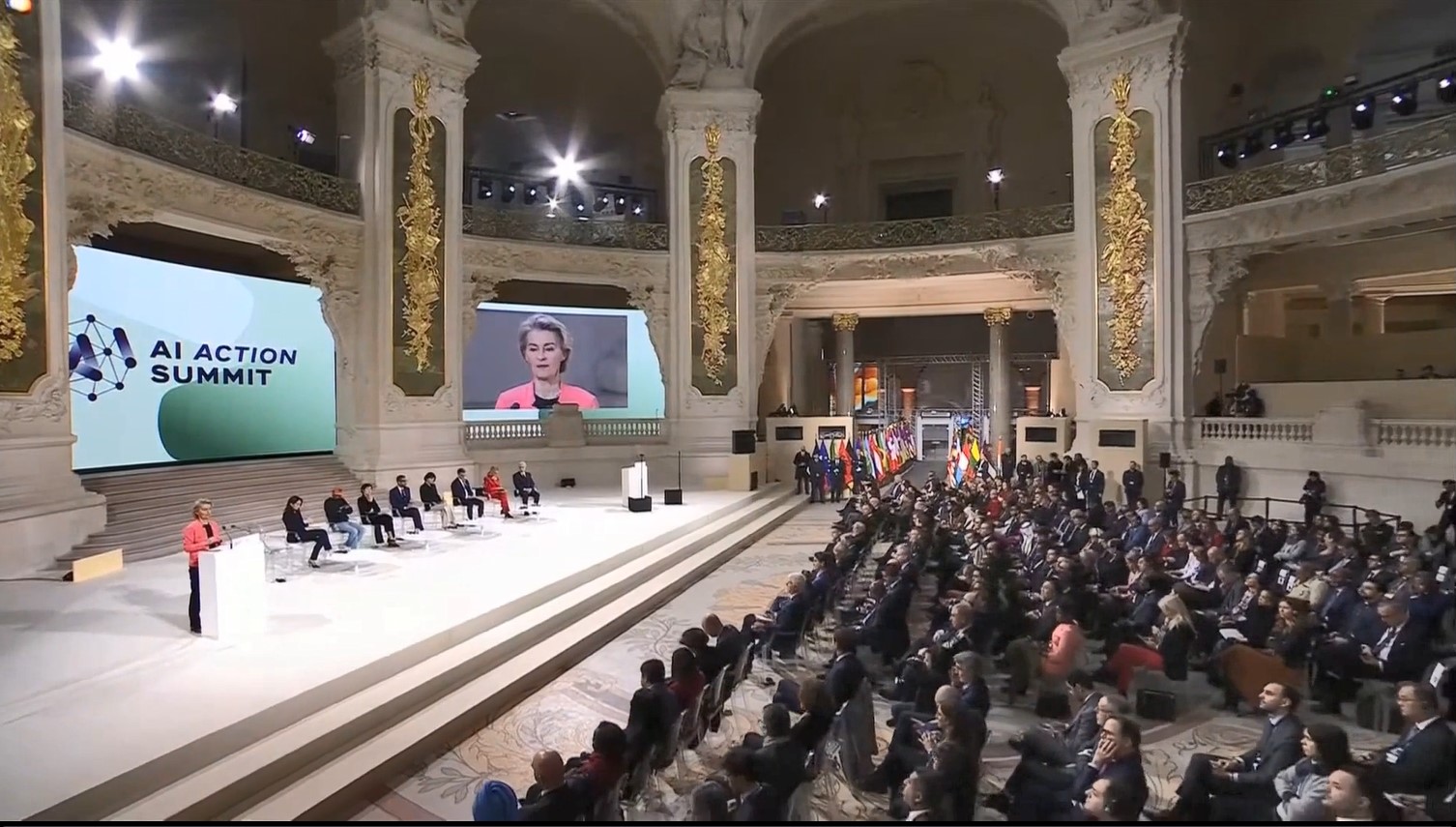
Promoting AI Innovation: Europe's Action Plan
First, we want to accelerate AI innovation. Europe has some of the world’s fastest public supercomputers. We are making these computing resources available to the best startups and scientists so they can develop the AI we need. They can test and train models on our supercomputers.
In just a few months, we have established 12 AI factories and invested 10 billion euros. This is not just a promise; it is an ongoing reality. This is the world’s largest public investment in AI, which will stimulate over ten times as much private investment.
We aim to provide every company—not just large enterprises—with the computing resources they need. We want AI developers to compete based on innovation, not just access to chips or financial strength.
AI Requires Both Competition and Cooperation
AI needs not only competition but also cooperation, as well as public trust and security safeguards. This is the goal of the AI Act: to establish a unified set of AI safety rules across the EU, benefiting 450 million people rather than having 27 countries set their own regulations.
Thank you all!
 Celebrity Media TV
Celebrity Media TV









